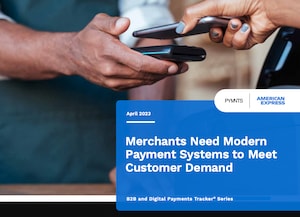December 20, 2022
6 Financial Tools Your Business Might Need

Sam Meenasian
USA Business Insurance and BISU Insurance
Like other small- and mid-size business owners, I have been frustrated trying to maintain the financial side of my business. However, cloud-based tools have made handling the day-to-day financial tasks of my company much easier. Many consider the financial tools below essential to running a business, spanning areas from accounting to expense management to budgeting and more.
Financial Tools for Small Businesses
Here are six financial management tools for small businesses that can make it easier to manage your finances.
1. Accounting Software
While certain accounting software platforms have been considered top-of-the-line for many years, now newer software options are also becoming more popular. Before choosing accounting software for your company, look for features important to your business. They might include cloud-based entries, integration with your POS software or the ability to easily send information to your tax preparer.
2. Expense Tracking
When my employees are on the go, they often have different expenses that will need to be reimbursed – meals and mileage, for example. Monitoring such expenses is part of some accounting software, but not all, so look for a program that integrates with your accounting software if the feature isn't already present. Also, be sure you're not paying for more than you need. Some expense management software is more robust than a typical small-to-mid-size business requires.
3. Budgeting Tools
One of the crucial ways a business can be successful is to maintain careful budgeting. Knowing what money is coming in and going out makes it easier to manage your cash flow and plan for upcoming months. Generally, I use reports from my company's accounting software to make sure inflows and outflows are on track.
4. Payroll Management
A lot goes into managing a company's payroll, and making errors in this area is expensive. Once my company started to grow, I knew I couldn't handle my own payroll anymore. In my experience, the best payroll solutions for small-to-mid-size businesses are those that scale as your business grows and that integrate with your accounting software. If you work with both freelancers and W2 employees, you'll also want to ensure that the solution makes working with both easy.
5. Easy Billing
Waiting for your vendors to pay their bills can make your business struggle. For some big suppliers, paying late is standard business practice and you may not be able to do anything about it other than to work with another company. But for other businesses, having quick and easy billing and payment options may be simpler.
If you already use a digital or online solution to accept payments, their on-the-go invoicing capabilities may suffice. If you buy software, it's important to get a solution with a robust set of features and flexible pricing plans. It's also essential to be able to easily create invoices and to track expenses and time. And don't forget to check that your software integrates with third-party payment apps.
One of the crucial ways a business can be successful is to maintain careful budgeting. Knowing what money is coming in and going out makes it easier to manage your cash flow and plan for upcoming months.
6. Inventory Tracking
POS software tracks sales, and accounting software tracks profits and losses, but what do you use to track your inventory? When you have just one location, monitoring inventory may be easier. On the other hand, when you're looking at products over multiple locations, you need more powerful tools to keep everything on track. Software solutions that automate inventory monitoring and tracking can save you time and money and provide a competitive edge. Benefits to consider are features tailored to your business, real-time inventory visibility and the ability to track inventory from purchase order to sale. It's also crucial that your inventory software integrates with your POS software.
The most important factor in choosing high-quality financial tools for your company is to make sure they all work together. Without integration, the financial side of your business can quickly turn into a big mess.
FAQs on Financial Tools
1. What are examples of financial tools?
Examples of business finance tools are accounting software like QuickBooks or FreshBooks that can help a small-business owner with any accounting-related tasks, including invoicing, expense management, sales, payroll, taxes, and inventory management. Personal financial management tools can help people to track their income and expenses and assist with budgeting.
2. What is the importance of financial tools for any business?
Financial tools and software are an important part of financial management for any business. The right tools can help you to monitor cash flow income and outgoings, which allows you to keep an eye on your financial health. Financial management tools for small business are also helpful for simplifying many everyday tasks including payroll, invoicing, paying bills, and taxes.
Photo: Getty Images








